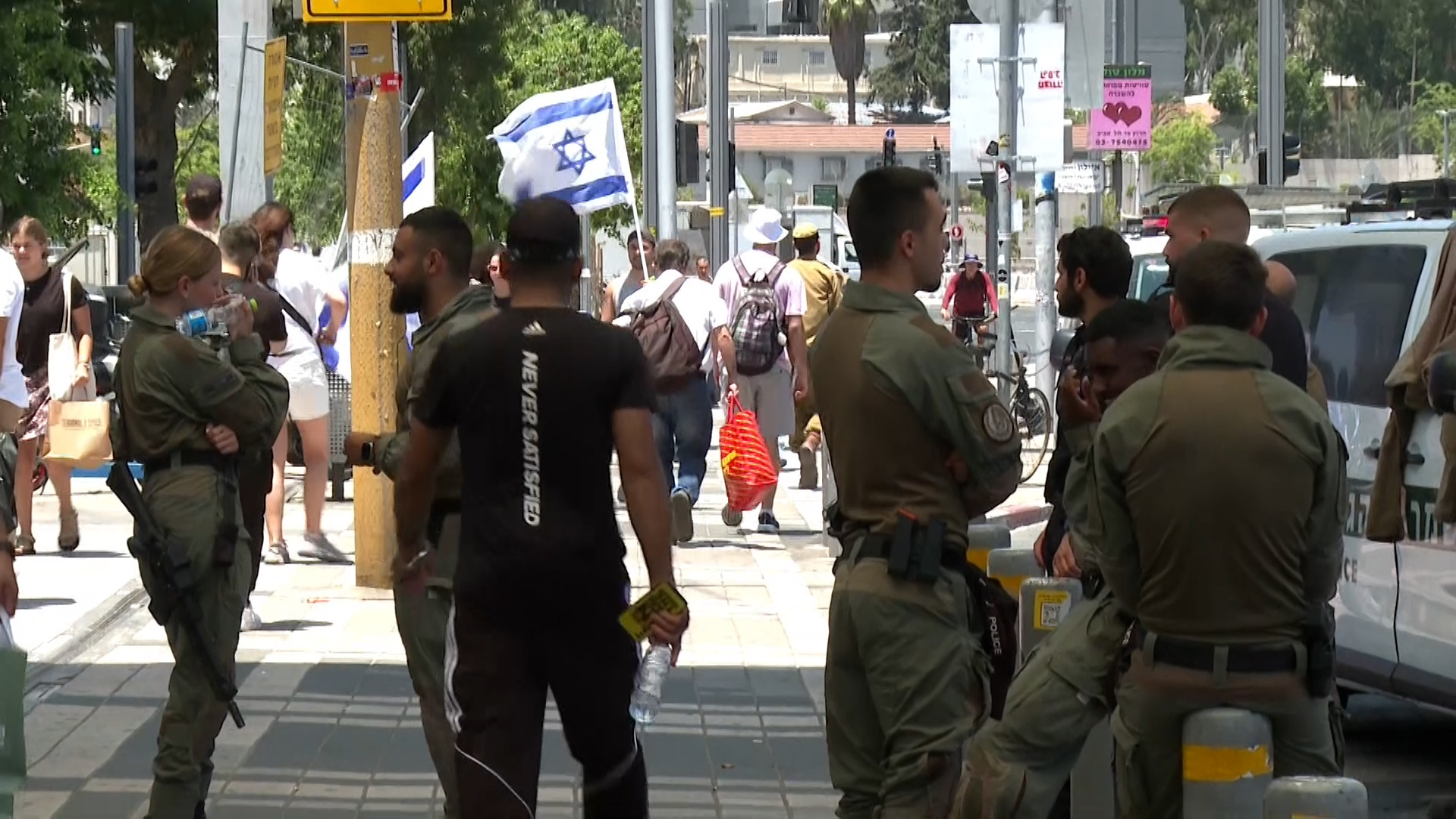play videoplay video
Video duration 06 minutes 57 seconds 06:57
Since the start of the Israeli war on the Gaza Strip, the occupation media has been waging a war different from the one the world is watching, not only in the style and form of bias, but also in its abandonment of any professional standards.
From the first day of the war on the Gaza Strip, the Israeli media volunteered to serve the authority and the army, and this was not without journalists stripping themselves of the most basic standards of professionalism and impartiality.
This was represented in various forms, reaching the point of incitement to kill Palestinians and the search for the confidence of an Israeli consensus that yearned for revenge after what was considered a “terrible defeat” that Israel suffered on October 7 last year.
Al Jazeera correspondent Elias Karam monitored in a report how the Israeli media dealt with the war on the Gaza Strip, the worst of which was not demonizing the Palestinians and describing them as animals, as Defense Minister Yoav Galant said, but rather the matter went much further than that.
The Israeli media's devoid of any professional standards appeared in its attempt to satisfy the motive of revenge as the primary concern of its citizens, through public calls for mass killing and starvation of Palestinians.
Models and examples
Among the statements that the report monitored were what Roi Sharon, the military correspondent for Channel 11, said: “If we want to win this war, the way is to undermine Hamas’s authority, even if the price is a million bodies in the Gaza Strip.”
This also includes the incitement of Tzvika Yehezkeli, the Arab affairs editor for Channel 13, to the need for the first strike to begin with the killing of 100,000 Palestinians in Gaza.
While another media personality said, if Israel chooses life, it must strike the “enemy” and that it be a blind, satanic, and brutal punishment that has no limits, adding, “Israel must unleash fire on Gaza and on any enemy that raises its head without distinction, limits, morals, or obedience to the law, but rather destruction.” absolute".
Commenting, Haim Klein, a professor of political science at Bar-Ilan University, considered that this represents a bankruptcy of the Israeli media, which has stopped asking important questions such as: Why did we go to war? Is there a real goal for her or is it just revenge? The media also did not criticize the authority, but rather followed it, which is a grave mistake, according to its assessment.
Although the Israeli media was not expected to sympathize with the suffering of the Palestinians due to political and ideological considerations, in addition to commercial considerations related to viewership rates and advertising returns, it was interesting for some journalists to assume the role of political and military advisors in Israel regarding the most appropriate ways to abuse the Palestinians.
Struggle tool
In this regard, the Israeli writer and journalist, Danny Rubinstein, says that the Israeli media has turned into a tool in the political and military conflict, as it plays the role of propaganda in order to raise morale and support the army, so it imposed self-censorship in hiding everything that is not good.
In this context, he cited an example when one of the liberated female prisoners said that Hamas treated her kindly, which was similar to a terrorist operation on the level of Israeli propaganda, pointing out that anyone who deviates from this approved line becomes deviant or anti-Semitic, and a disgrace to the Israeli press.
In addition to incitement and political sermons, some journalists went to perform religious rituals on the ruins of Palestinian homes and write wishes on the rocket shells that Israeli artillery was relentlessly pounding Gaza with.
The Israeli media abandoned a large part of its independence and imposed self-censorship on itself, in addition to the strict censorship with which the military censor restricted journalistic work during the war. The tours organized by the army for journalists appeared to be part of propaganda and promotion of the army’s exclusively political and field narrative.
The Israeli media blocked images of the destruction that befell Gaza as much as it could, except for what served the Israeli narrative. There was no place to talk about innocent Palestinians suffering from hunger and destruction. Rather, healing their condition was the basis.
While the fate of those few Israeli journalists who disagreed with the accepted narrative was suspension from work and forced to apologize, as happened with journalist Gil Tamari, who announced his retraction from statements in which he accused the occupation Prime Minister Benjamin Netanyahu of wanting the death of prisoners in Gaza.
Source: Al Jazeera

